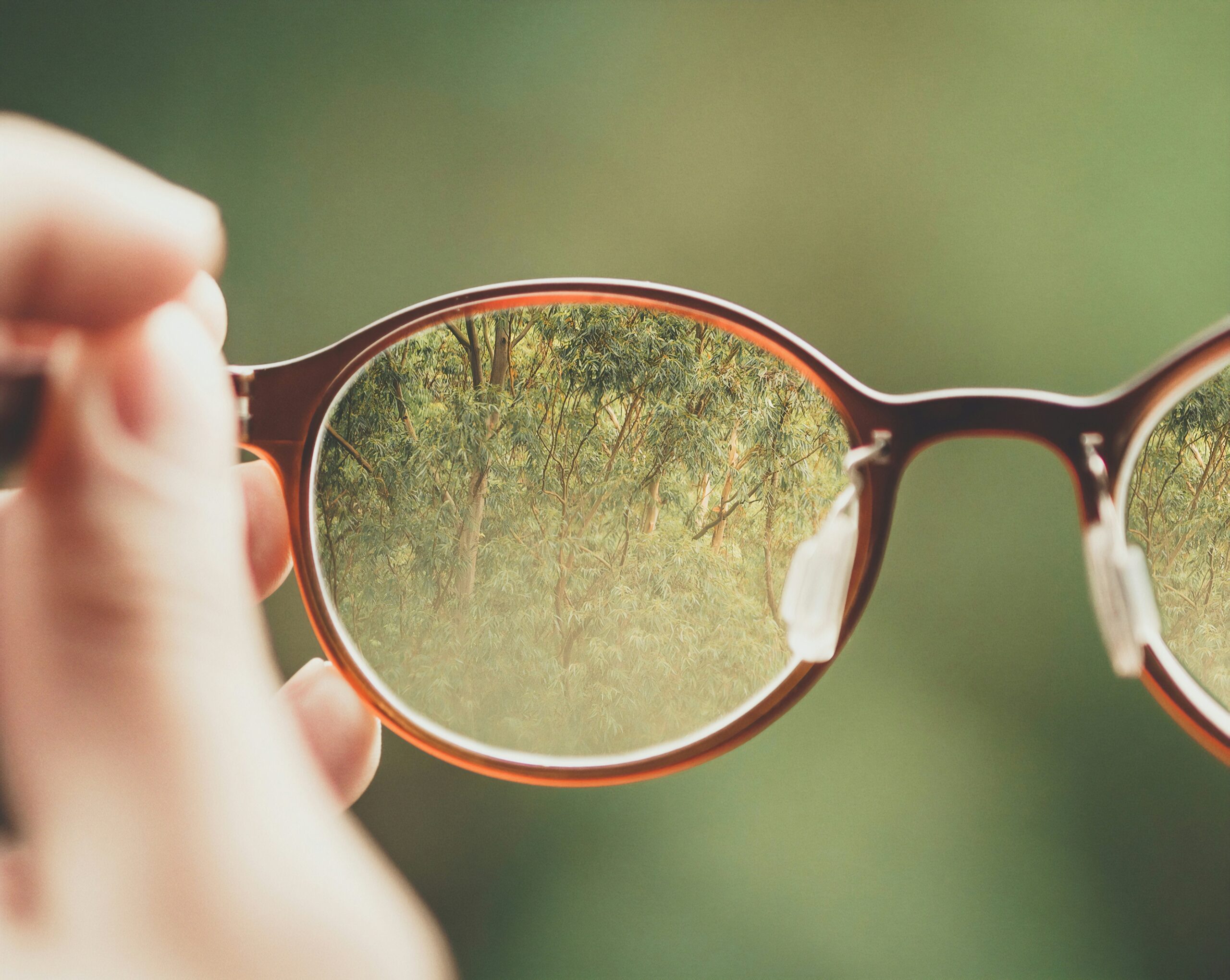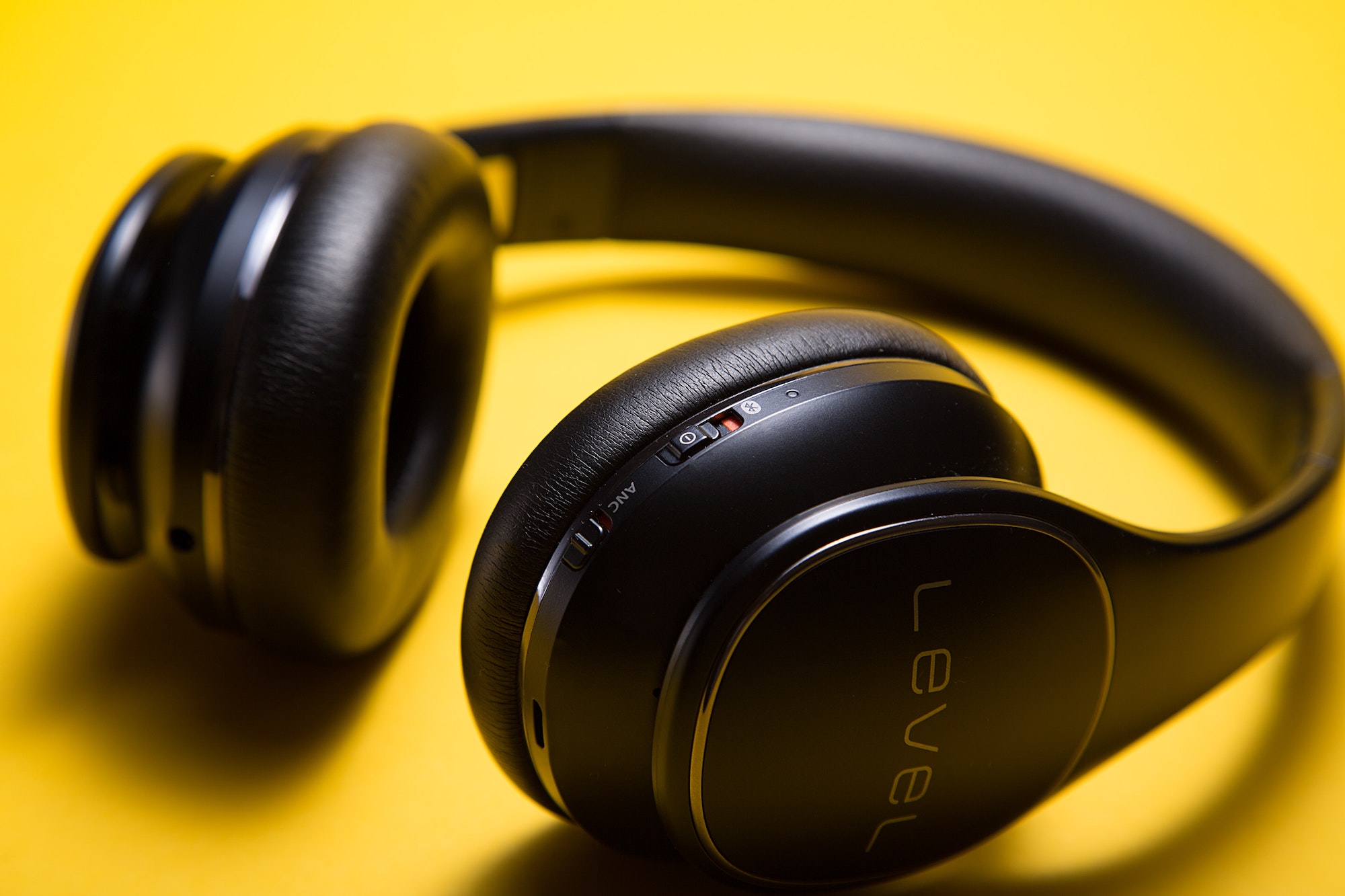Cleaning your glasses properly is essential for maintaining clear vision and prolonging the life of your lenses and frames. Whether you wear prescription glasses, reading glasses, or sunglasses, regular and proper cleaning can prevent scratches, remove smudges, and keep them in top condition. This comprehensive guide will cover everything you need to know about cleaning your glasses effectively.
Introduction
Glasses are an integral part of daily life for millions of people. They help us see clearly, protect our eyes from harmful UV rays, and can even be a fashion statement. However, dirty or scratched lenses can hinder vision and lead to discomfort. Regular and proper cleaning is vital for ensuring that your glasses remain in optimal condition, providing you with clear vision and comfort.
Understanding Your Glasses
Types of Lenses
Different types of lenses require specific care methods. Understanding the type of lenses you have is crucial for cleaning them correctly.
- Prescription Lenses: Made from plastic, polycarbonate, or glass, and may have special coatings like anti-reflective or scratch-resistant.
- Sunglasses: Often made from polycarbonate or plastic and can have UV protection, polarized coatings, or tinting.
- Reading Glasses: Typically made from plastic or glass, these may not have special coatings but still require gentle cleaning.
Types of Frames
Frames can be made from various materials, each with its own care requirements.
- Metal Frames: Durable but can be prone to corrosion if exposed to moisture and sweat.
- Plastic Frames: Lightweight and flexible but can become brittle over time.
- Combination Frames: Made from both metal and plastic, requiring a balanced cleaning approach.
Importance of Regular Cleaning
Regular cleaning of your glasses is essential for several reasons:
- Clear Vision: Removes smudges, dirt, and dust that can impair your vision.
- Hygiene: Eliminates bacteria and oils from your skin that accumulate on the lenses and frames.
- Durability: Prevents scratches and damage, extending the life of your glasses.
Basic Cleaning Supplies
Essential Tools
To clean your glasses effectively, you’ll need a few basic tools:
- Microfiber Cloth: Soft and non-abrasive, ideal for wiping lenses without scratching.
- Lens Cleaner: A solution specifically formulated for cleaning glasses lenses.
- Lukewarm Water: For rinsing lenses before and after applying cleaning solutions.
Optional Tools
For more thorough cleaning, consider these optional tools:
- Ultrasonic Cleaner: A device that uses ultrasonic waves to clean glasses more deeply.
- Lens Cleaning Wipes: Pre-moistened wipes designed for cleaning glasses on the go.
- Screwdriver Kit: For tightening any loose screws in the frames.
Preparing to Clean Your Glasses
Washing Your Hands
Before cleaning your glasses, wash your hands thoroughly with soap and water. This prevents transferring oils, dirt, and bacteria from your hands to the lenses and frames.
Choosing the Right Environment
Clean your glasses in a clean, well-lit area. Avoid cleaning them in areas with a lot of dust or debris, which can stick to the lenses and frames.
Cleaning Your Glasses
Rinsing with Lukewarm Water
Start by rinsing your glasses under lukewarm water. This removes loose dirt and debris that could scratch the lenses when wiping.
Applying Lens Cleaner or Mild Soap
Apply a small amount of lens cleaner or a drop of mild, lotion-free dish soap to each lens. Avoid using household cleaners, which can damage lens coatings.
Gently Wiping with a Microfiber Cloth
Using a clean microfiber cloth, gently wipe the lenses in a circular motion. Be sure to clean both sides of the lenses and the frames, paying attention to the nose pads and ear pieces.
Deep Cleaning Methods
Ultrasonic Cleaners
Ultrasonic cleaners are effective for deep cleaning your glasses. These devices use high-frequency sound waves to remove dirt and grime from the lenses and frames.
- How to Use: Fill the ultrasonic cleaner with water and a few drops of lens cleaner. Place your glasses in the device and run it according to the manufacturer’s instructions.
Professional Cleaning Services
For particularly dirty or delicate glasses, consider professional cleaning services. Opticians often offer cleaning services using specialized equipment and solutions.
Maintaining Your Glasses
Proper Storage Techniques
When not in use, store your glasses in a hard-shell case to protect them from dust, dirt, and accidental damage. Avoid placing them lens-side down on any surface.
Regular Maintenance Tips
- Inspect Regularly: Check for loose screws and other signs of wear and tear. Tighten screws with a small screwdriver if needed.
- Avoid Harsh Chemicals: Never use ammonia-based cleaners, bleach, or alcohol on your lenses or frames.
- Clean Cloths: Regularly wash your microfiber cloths to ensure they remain effective and free of dirt.
Troubleshooting Common Issues
Dealing with Scratches
Minor scratches can sometimes be polished out with a lens-safe scratch remover. For deep scratches, consult a professional.
Removing Stubborn Smudges
For stubborn smudges, reapply lens cleaner and use a clean section of your microfiber cloth. Press gently but firmly in a circular motion until the smudge is gone.
Addressing Loose Screws
Use a small screwdriver to tighten any loose screws on the frames. If a screw is lost, visit an optician for a replacement.
Special Considerations
Cleaning Coated Lenses
Coated lenses, such as anti-reflective or blue light filter lenses, require gentle cleaning. Use lens cleaners specifically designed for coated lenses and avoid abrasive cloths.
Handling Delicate Frames
Frames made from delicate materials like titanium or specialty plastics should be handled with care. Avoid excessive bending or applying pressure during cleaning.
Myths and Misconceptions
- Myth: Using your breath and a shirt is an effective way to clean glasses.
- Fact: This method can transfer oils and dirt from your shirt to the lenses, causing scratches.
- Myth: Vinegar and lemon juice are good cleaning agents for glasses.
- Fact: These acidic substances can damage lens coatings and frames.
- Myth: Hot water is better for cleaning glasses.
- Fact: Hot water can damage lens coatings and warp plastic frames. Use lukewarm water instead.
Additional FAQs
Can I use alcohol wipes to clean my glasses?
It’s best to avoid alcohol wipes as they can damage lens coatings. Use lens-specific cleaning wipes instead.
How often should I clean my glasses?
Clean your glasses daily to remove smudges, dirt, and bacteria.
Is it safe to use paper towels to clean my glasses?
No, paper towels can be abrasive and cause scratches. Always use a microfiber cloth.
Can I clean my glasses with hand sanitizer?
Hand sanitizer contains alcohol, which can damage lens coatings. Use a lens cleaner instead.
Why do my glasses still look dirty after cleaning?
Ensure you’re using a clean microfiber cloth and proper lens cleaner. Rinse thoroughly before and after applying cleaner to remove all residues.
How do I clean the nose pads on my glasses?
Use a soft brush and mild soap to gently scrub the nose pads. Rinse thoroughly and dry with a clean cloth.
Can I use baby wipes to clean my glasses?
No, baby wipes contain oils and chemicals that can leave residues on your lenses.
What should I do if my glasses get wet in the rain?
Rinse them with lukewarm water and clean with a microfiber cloth to remove any dirt or residues left by the rain.
How can I prevent my glasses from fogging up?
Use an anti-fog spray or wipes designed for glasses. Ensure your lenses are clean and dry before application.
Is it necessary to clean new glasses?
Yes, new glasses may have residues from manufacturing. Clean them before first use.
How do I clean sunglasses with mirrored lenses?
Use a lens cleaner specifically for mirrored lenses and a microfiber cloth. Handle with care to avoid scratching the mirror coating.
Can I use dish soap to clean my glasses?
Yes, but ensure it is mild and lotion-free. Rinse thoroughly to remove all soap residues.
How do I clean glasses with transition lenses?
Clean them the same way as regular lenses, but avoid prolonged exposure to direct sunlight while drying to protect the transition coating.
Can I use my glasses case to clean the lenses?
No, the material inside the case can scratch the lenses. Use a microfiber cloth instead.
Why do my glasses have a rainbow effect after cleaning?
This can be due to residues left by the cleaner. Rinse thoroughly and dry with a clean microfiber cloth.
How do I clean glasses with a gold or silver frame?
Use a mild soap and water solution. Avoid abrasive materials that can scratch the metal.
Is it safe to use Windex on my glasses?
No, Windex contains chemicals that can damage lens coatings. Use a lens cleaner designed for glasses.
How do I clean the hinges on my glasses?
Use a soft brush and mild soap to clean the hinges. Rinse thoroughly and dry with a clean cloth.
Can I use a hairdryer to dry my glasses?
Avoid using a hairdryer as the heat can damage the lenses and frames. Air dry or use a soft cloth.
How can I keep my glasses from slipping down my nose?
Ensure the nose pads are clean and free from oils. Adjust the fit if necessary or visit an optician for an adjustment.
General Cleaning Questions
How can I tell if a cleaning solution is safe for my glasses?
Check the label to ensure it is specifically formulated for eyewear. Avoid any products containing ammonia, bleach, or other harsh chemicals.
Is it okay to use vinegar to clean my glasses?
No, vinegar is acidic and can damage lens coatings and frames over time.
Can I use cleaning solutions designed for camera lenses on my glasses?
Yes, if the solution is safe for coated lenses, it can typically be used on glasses. However, always double-check the manufacturer’s instructions.
How do I remove sticky residue from my lenses?
Use a small amount of mild soap and warm water, gently rubbing the residue with a microfiber cloth. Rinse thoroughly and dry.
Lens-Specific Questions
How do I clean progressive lenses?
Clean progressive lenses just like regular lenses, using a mild lens cleaner and a microfiber cloth. Be sure to clean the entire surface evenly.
Can I use eyeglass cleaning sprays on anti-reflective lenses?
Yes, but ensure the spray is specifically designed for anti-reflective lenses to avoid damaging the coating.
How do I clean polarized lenses?
Use a lens cleaner designed for polarized lenses and a microfiber cloth. Avoid using any abrasive materials.
Frame-Specific Questions
What’s the best way to clean plastic frames?
Use a mild soap and water solution, gently scrubbing with a microfiber cloth. Rinse thoroughly and dry.
How do I clean metal frames without causing rust?
Use a damp microfiber cloth with a small amount of mild soap. Dry immediately with a clean, dry cloth to prevent rusting.
Can I clean my glasses with decorative elements the same way?
Clean carefully around decorative elements to avoid dislodging them. Use a gentle lens cleaner and microfiber cloth.
Deep Cleaning and Maintenance
How often should I deep clean my glasses?
Deep clean your glasses at least once a month or more frequently if they get very dirty.
How do I prevent my glasses from getting dirty so quickly?
Store them in a case when not in use, avoid touching the lenses, and clean them regularly to prevent buildup.
What should I do if my glasses develop a white film?
This could be from hard water or residue. Clean with a mixture of distilled water and mild soap, then rinse thoroughly with distilled water and dry with a microfiber cloth.
Professional Care
When should I take my glasses to a professional for cleaning?
If your glasses are extremely dirty, have stubborn stains, or if you want to ensure thorough cleaning without risking damage, visit a professional.
Can I take my glasses to an optician for regular maintenance?
Yes, many opticians offer cleaning and maintenance services, including tightening screws and adjusting the fit.
Troubleshooting Issues
Why do my glasses keep getting smudges even after cleaning?
Ensure your cleaning cloths are clean and residue-free. Regularly wash your microfiber cloths and avoid using fabric softeners.
How do I fix foggy lenses?
Use anti-fog wipes or sprays designed for glasses. Ensure your lenses are completely clean before application.
What can I do if my lenses are cloudy?
Cloudiness can be caused by residue or lens damage. Clean thoroughly with a lens cleaner, and if the cloudiness persists, consult an optician.
Special Situations
Can I clean my glasses with household window cleaner?
No, household window cleaners often contain ammonia and other chemicals that can damage the lens coatings.
How do I clean my glasses after they’ve been exposed to saltwater?
Rinse them thoroughly with fresh, lukewarm water to remove salt residue, then clean as usual with lens cleaner and a microfiber cloth.
What’s the best way to clean glasses after exercising?
Wipe off sweat with a clean cloth, then clean the lenses with a lens cleaner and microfiber cloth. Ensure the frames are also wiped down.
Can I use a steam cleaner on my glasses?
No, steam can damage the lens coatings and frames. Stick to traditional cleaning methods.
Environmental Considerations
How do I keep my glasses clean in dusty environments?
Carry a microfiber cloth and lens cleaner with you. Clean your glasses frequently to prevent dust buildup.
What should I do if my glasses get dirty at the beach?
Rinse with fresh water to remove sand and salt, then clean with a lens cleaner and microfiber cloth.
Can I use my breath to clean my glasses in a pinch?
Using your breath and a clean cloth can be a temporary solution, but it’s not ideal. Always carry a microfiber cloth for proper cleaning.
Additional Tips
How can I keep my glasses from slipping down my nose?
Clean the nose pads regularly to remove oils. If slipping persists, consider adjusting the fit or using adhesive nose pads.
Is it okay to clean my glasses with a shirt or tissue?
No, shirts and tissues can scratch the lenses. Always use a microfiber cloth.
How do I prevent my glasses from fogging up while wearing a mask?
Use anti-fog sprays or wipes, and ensure your mask fits snugly over your nose to minimize breath escaping upwards.
Can I use a special cleaning cloth for blue light filter lenses?
Yes, use a microfiber cloth and ensure the lens cleaner is safe for blue light filter coatings.
What should I do if my glasses smell bad?
Clean thoroughly with soap and water, focusing on the nose pads and frame. Rinse well and dry completely.
How do I prevent fingerprints on my lenses?
Handle your glasses by the frame and avoid touching the lenses. Clean regularly to remove any accidental fingerprints.
Conclusion
Cleaning your glasses regularly and correctly is essential for maintaining clear vision and extending the life of your lenses and frames. By following the steps outlined in this guide, you can ensure your glasses remain in excellent condition.
Remember to handle your glasses with care, use the right cleaning tools and solutions, and store them properly when not in use. With proper care, your glasses will provide you with clear vision and comfort for years to come.



